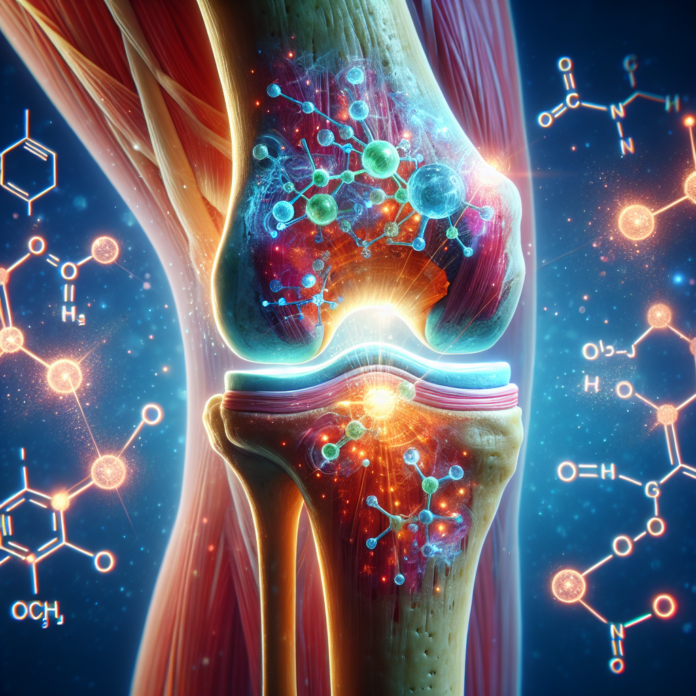The Role of the Meniscus and Challenges of Healing
The meniscus, a C-shaped cartilage in the knee, plays a critical role as a shock absorber and stabilizer. Located medially and laterally within the knee joint, it is susceptible to tears, which are common yet complex injuries typically necessitating surgical intervention due to the meniscus’s limited blood supply and healing capacity. With advancements in medical science, the potential use of peptides such as BPC 157 as a non-surgical treatment option has sparked interest within the medical community and among patients.
Understanding Peptides and BPC 157
To understand whether peptides like BPC 157 can effectively aid in meniscal healing, it is important first to grasp what peptides are and how they function. Peptides are short chains of amino acids that occur naturally in the body. BPC 157, derived from the gastric juice, is one peptide that has gained attention for its potential therapeutic benefits. Synthetic versions of BPC 157 can be produced in laboratories and are available through approved compounding pharmacies. The peptide’s reputation largely centers around its purported regenerative and anti-inflammatory properties, alongside its ability to relieve pain.
Current Research and Skepticism
Despite these optimistic attributes, it is crucial to emphasize that peptides, including BPC 157, remain in the experimental phase according to FDA standards. This classification signifies that while some promising preclinical studies exist, conclusive clinical evidence supporting their efficacy for meniscus repair in humans is lacking. The available research on BPC 157 primarily involves animal models, with few human studies providing definitive outcomes regarding its effectiveness for meniscus tears.
The rationale behind considering BPC 157 for meniscal injuries lies in its proposed mechanism of action. It is thought to potentially modulate growth factors, improve blood circulation at the injury site, and enhance the healing process. However, these effects are hypothesized rather than empirically validated in the context of knee joint injuries. The skepticism around the use of BPC 157 stems from the challenge of ensuring adequate delivery of the peptide to the intra-articular space where the meniscus resides. Whether administered orally or via subcutaneous injection, the bioavailability and effective concentration of BPC 157 in the knee joint remain areas of concern.
Alternative Regenerative Treatments
Moreover, even direct intra-articular injection of BPC 157 by a healthcare provider may not guarantee the desired regenerative outcomes for a meniscus tear. Factors such as the extent of the tear, the patient’s age, and individual biological variations further complicate the healing potential. While BPC 157 might offer some degree of pain relief, its role as a regenerative agent for meniscal repair is not supported by robust evidence at this time.
For patients exploring alternatives to surgery, it is worthwhile to consider other regenerative approaches that have gained traction within the medical field. Treatments such as exosomes, stem cells, and platelet-rich plasma (PRP) therapy present exciting possibilities for tissue repair and regeneration. Unlike peptides, there is a growing body of clinical research exploring these modalities, providing a more established foundation for their potential to promote meniscal healing.
Consulting a Healthcare Professional
Ultimately, the decision to pursue any form of treatment should be made in consultation with a qualified healthcare professional. An individualized assessment of the injury, the risks and benefits of each treatment option, and the patient’s personal health goals are essential components of the decision-making process.
For those interested in exploring alternative treatments for orthopedic injuries, seeking the guidance of an experienced orthopedic specialist can provide valuable insights and personalized care plans. Engaging in open discussions with a healthcare provider allows for informed decisions that align with one’s health objectives and lifestyle preferences.
Conclusion
While technology and research continue to advance, exploring new scientific frontiers holds promise for transforming how injuries like meniscus tears are managed. Until conclusive evidence is established, however, skepticism remains a prudent stance when considering peptides like BPC 157 for meniscus healing. As always, continued research and clinical trials will shape the future landscape of regenerative medicine, potentially offering improved therapeutic options for patients in years to come.
